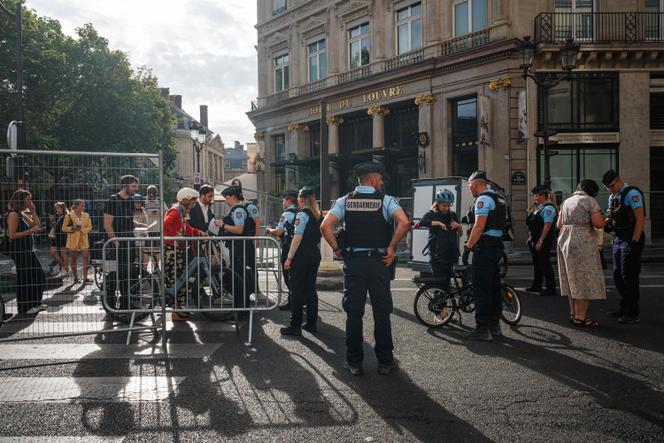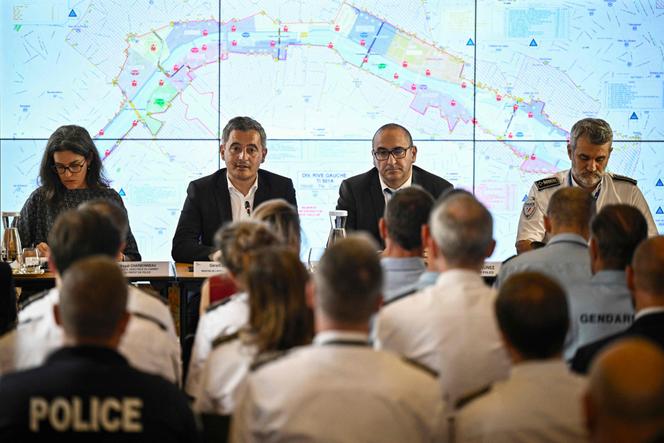


More than 40,000 barriers lining the streets of Paris, security perimeters forbidding any access to the Seine without a QR code, hundreds of police and gendarmerie patrols, and closed metro stations: Rarely in peacetime has the French capital experienced such high levels of security.
With three days to go until the opening ceremony of the Olympic and Paralympic Games on Friday, July 26, zero risk seems more than ever to be the guiding principle for public authorities. The smooth running of the world's most-watched sporting event is not just a question of anticipating the risk of terrorism or controlling crime. As Emmanuel Macron warned on July 19, 2023, in front of a government meeting for an Olympic and Paralympic Committee, the "image of France" is at stake.
One year to the day later, in a meeting room on the third floor of the Paris Police Prefecture, the hub of operations located on the Ile de la Cité, Police Prefect Laurent Nuñez said that "everything is going according to plan. At this stage, we have no specific fears, but we obviously remain vigilant." But the police prefecture could not help glancing out of the window, to check on the effect of the filtering measures introduced since the previous day. The internal security and counter-terrorism perimeter was put into force at 5 am on July 18.

Until the end of the opening ceremony, only people – local residents, permanent and temporary workers – with a Pass Jeux, or "Games Pass", issued online after giving proof of identity, are allowed access to the quays of the Seine. A larger area, known as the "red perimeter," reduces vehicle traffic to only drivers with the accreditation.
The security machinery for the Olympic Games is undoubtedly the largest ever implemented in France during a period of peace. Police officers and gendarmes have been asked – in return for bonuses for the former – to ensure a 100% presence rate throughout the Games. In Paris, Nuñez said, "70% of police station staff will be made available to the DSPAP [directorate of local security in the Paris area] and the DOPC [directorate of public order and traffic], but the remaining 30% will also be working for the benefit of the Games, given their enormous influence on the urban area."

There will be an average of 30,000 security personnel on the streets of Paris every day (45,000 on peak days), not including the 20,000 security guards and 10,000 Operation "Sentinelle" soldiers, deployed in the aftermath of the January 2015 terrorist attacks, to ensure access to the opening ceremony. They patrol the streets to respond to any terrorist attack and to prevent and deal with crime.
You have 76.94% of this article left to read. The rest is for subscribers only.
